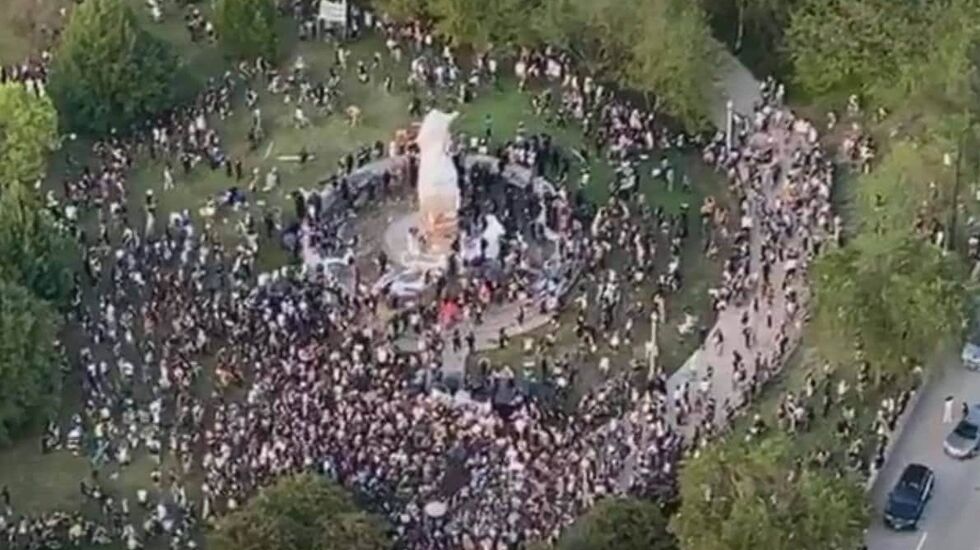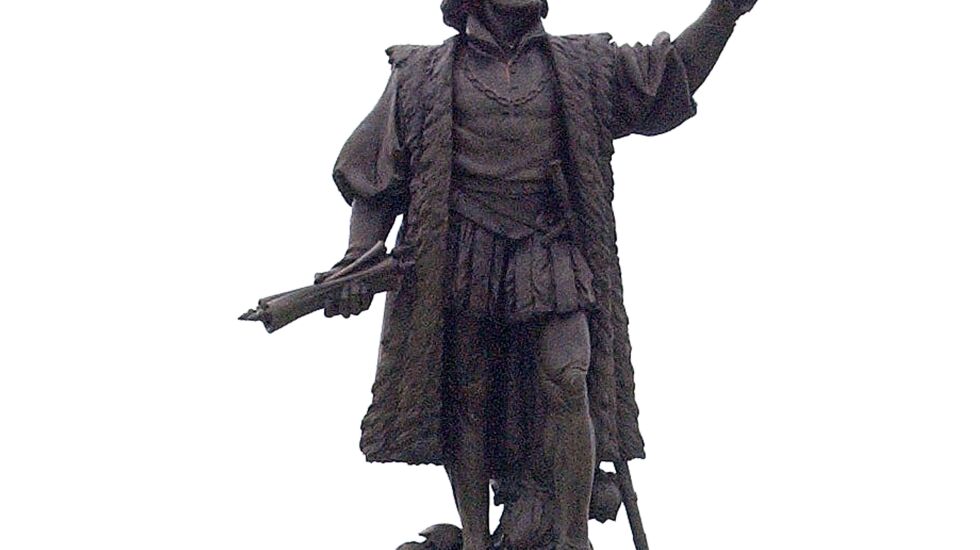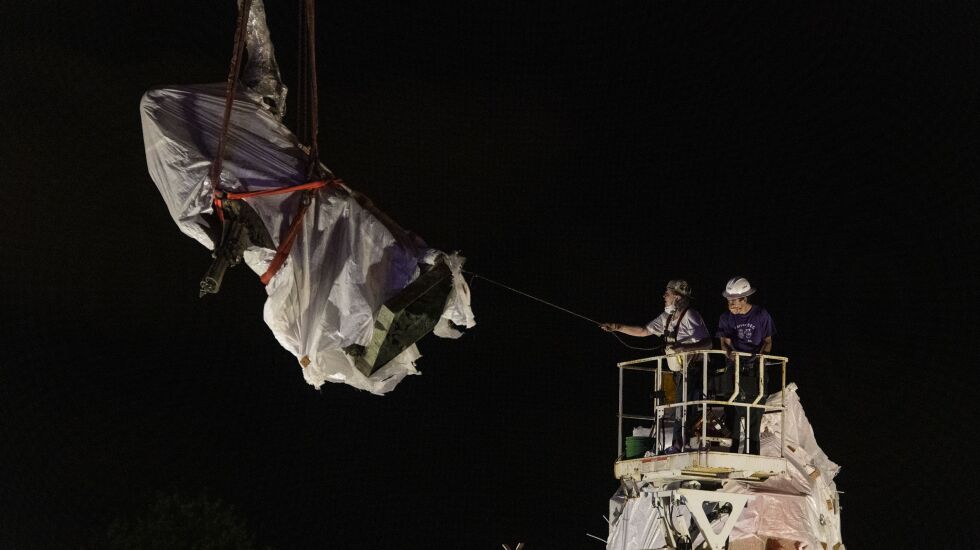
Columbus Day came and went without the return of statues that Mayor Lori Lightfoot ordered removed from Grant and Arrigo parks two years ago — but at least the two sides are finally talking.
Two months ago, the Joint Civic Committee of Italian Americans demanded that statues of Christopher Columbus be returned to Grant and Arrigo parks by Columbus Day and protected at city expense.
The statues were removed in July 2020 after becoming a favorite target of protests and vandalism during the civil unrest that followed the May 2020 murder of George Floyd by a Minneapolis police officer.
The committee didn’t stop there. President Ron Onesti hired a national security firm at the committee’s expense recommend ways the statues could be protected.
On Monday, Onesti said attorneys for the city and the Joint Civic Committee have finally started talking about ways to secure the Columbus statues using the committee’s report as a starting point for those discussions.
But Onesti said Italian Americans are “very hurt, very furious” that Lightfoot ignored the demand to return the Columbus statues to their pedestals in time for Monday’s celebration of the Columbus Day holiday that his community holds dear.
“If this was any other ethnic group involved, this would have been taken care of a long time ago. For some reason, she feels that Italian Americans are easy to push around and easy to manhandle,” Onesti said.
The group’s security recommendations included cameras, motion detectors, 24-hour guards and a clear plastic enclosure.
For the Columbus statue in Grant Park specifically, the report suggested barriers to keep the public farther away. There was also a proposal to educate the public, by installing plaques to “tell the story of the Native American experience” with fencing surrounding a “big Native American Garden.”

Noting there is another hearing in late October on the Joint Civic Committee’s lawsuit against the city, Onesti said: “We have a legal document, a legal contract. And we’re gonna take it to the finish line.”
Law Department spokesperson Kristen Cabanban could not be reached for comment on Monday, a city holiday.
Enrico Mirabelli, an attorney representing the Italian American group, would only say there were “settlement negotiations” over the last week through a “series of emails.” Those talks “did not bear fruit,” he added.
“We may certainly revisit the issue. There’s always an invitation to continue settlement negotiations. But a settlement offer was made. We responded. But, no settlement was reached at this time,” Mirabelli told the Sun-Times. He declined to provide any details, such as whether the city’s settlement offer included the return of the statues.

Les Begay is a citizen of the Dine Nation and one of the founders of the Indigenous Peoples’ Day Coalition of Illinois.
Begay said returning the Columbus statues to Grant and Arrigo parks would be an affront to Chicago’s 70,000 Native Americans.
“If you read history and you read his own journals, you’ll see how he abused Native women and girls … and the cruelties and atrocities that he committed against Native people. He ... took them back to Europe as slaves,” Begay said.
“It’s very much like keeping Confederate statutes up. There’s no difference between the two. Columbus triggers Native people just like Confederate statues trigger other groups.”
In late August, Lightfoot’s Monuments Commission released its long-awaited report on the Columbus statues and other public monuments across the city. That report recommended the Columbus statues be permanently sidelined — and the Balbo Monument in Burnham Park be removed.
The mayor responded to the report and Onesti’s Columbus Day ultimatum by saying she had yet to see a plan that would allow the Columbus statues to be safely returned to their pedestals without endangering Chicago police officers.
She specifically cited a confrontation between officers and protesters at that monument in mid-July that turned violent and led to the statues’ removal.
“We had our police officers under siege. I’m never gonna put them in a situation where they’re literally risking their lives over a statue. That’s never gonna happen,” Lightfoot said then.
On Monday, Onesti refused to estimate the cost of the protections recommended by his group, but repeated his assertion that most of that expense should be covered by Chicago taxpayers.
“We believe that the city of Chicago should maintain their own property, their own statues and their monuments and protect them, although I’m sure we’re all willing in the private sector to be a part of that conversation, too,” he said.
“From the beginning — when she took the statues down — we’ve wanted to be part of that discussions. What do we do? How long? What’s the plan? And for two years, we’ve been waiting for a plan. Now, we’ve provided a plan that may or may not be the plan. But it is a cause for the conversation.”
Begay says the commission’s work should be respected.
“The Monuments committee said do not bring them back. If the mayor overrides them, then the committee was nothing more than just pandering.”
Begay said explanatory plaques or a Native American park surrounding the Columbus statutes would do nothing to soften the blow.
“Most people probably wouldn’t even look at the plaque or get close enough to read the plaque,” he said.







